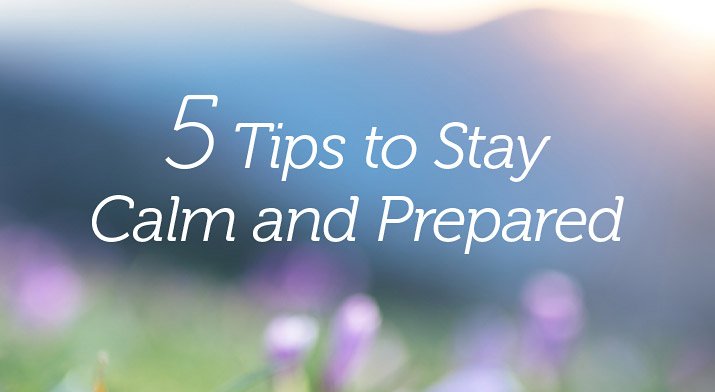Five Tips to Face a Health Crisis with Calm and Preparedness
By: Crouse News
March 25, 2020
Home » Crouse Connects » Five Tips to Face a Health Crisis with Calm and Preparedness
 As more information is received about the number of COVID-19 cases becoming more widespread, it’s normal to experience some fear and increased stress during this healthcare challenge. Our HelpPeople Employee Assistance Program team, led by Clinical Manager Elizabeth McCarthy, NCC, LMHC, suggests the following tips to help you and your family stay strong.
As more information is received about the number of COVID-19 cases becoming more widespread, it’s normal to experience some fear and increased stress during this healthcare challenge. Our HelpPeople Employee Assistance Program team, led by Clinical Manager Elizabeth McCarthy, NCC, LMHC, suggests the following tips to help you and your family stay strong.
Try to keep things in a calm perspective. Your calm mind is the ultimate weapon against your challenges, says Bryan McGill. Take a deep breath and remind yourself of the actions you can take to help protect yourself, your family and your community. Be constructive with your worry by taking simple actions, such as social distancing and regular hand washing. Your actions can truly make a positive impact on the situation. Taking breaks from news and social media can allow you to focus on other important issues occurring in your life. Make use of any extra time away from your typical schedule to focus on relaxing activities at home. Remember that the unknown does not equate to a worst-case scenario.
Take the time to educate yourself and get the facts. Trying to adopt a more mindful approach as you follow news reports about the coronavirus is advised. It’s important to verify information that you receive from family, friends or on social media, which can, in many cases, proves to be inaccurate. Bookmark Crouse’s own coronavirus web page and refer to the reliable sources we suggest for obtaining facts and updates.
Talking with your children. Discuss the coronavirus situation with honesty. Be mindful of age-appropriate information. Parents can also help alleviate fears and stress by engaging children in routines, activities and schedules. Remember children observe your behaviors and emotions for ways on how to manage their own feelings during this time. You may want to limit how much media they take in to help keep their anxiety down and in check.
Stay connected. Maintain social relationships that can provide a sense of normality and foster valuable outlets for sharing feelings and relieving stress. You can maintain these connections without increasing your risk of getting the virus by talking on the phone, using FaceTime and Skype or chatting with people on social media platforms. Feel free to share useful information you find on official governmental and public health websites with your friends and family to help them deal with their own anxieties.
Seek additional help. You may feel an overwhelming nervousness, a lingering loss and sadness or other prolonged reactions that adversely affect your job performance or interpersonal relationships. Please reach out to a trained professional or experienced mental health counselor for additional support. More than 6,000 mental health professionals have volunteered to speak with anyone who calls a New York State-supported free Emotional Support Hotline at 1-844-863-9314.
Crouse News is reported by members of our Communications Team.
Categories: Carepassion, Crouse in the Community, Crouse News
Tags: Carepassion, community, coronavirus, covid-19, Crouse Health, Crouse in the Community, crouse news, health, wellness
Share this
